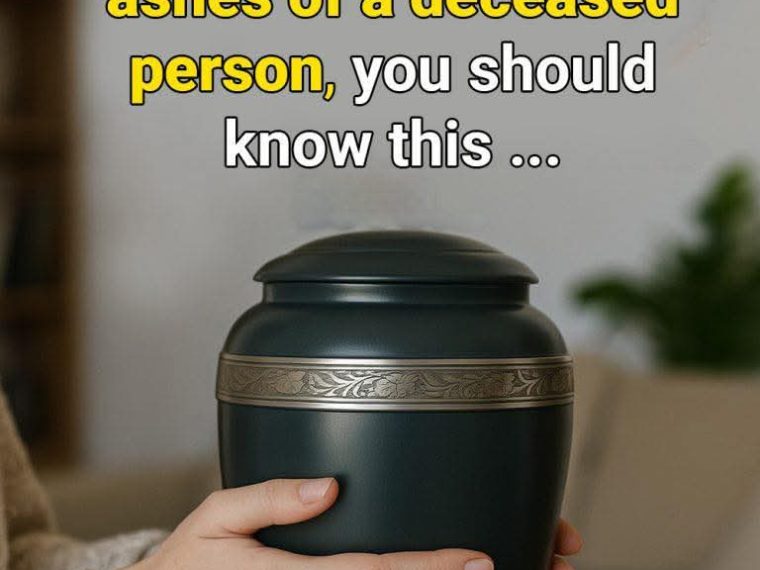Is it bad to have the ashes of a deceased person in your home?
The practice of keeping the ashes of a loved one at home is becoming increasingly common and is often done as a way to keep the memory of the deceased close.
Still, this decision can have different implications depending on each person’s religious or spiritual perspective.
In this article, we’ll explore what two approaches to the topic have to say: spiritualism and Christianity.
Perspective of Spiritualism

For Spiritism, d:eath is a transition in which the spirit separates from the physical body to continue its evolution on a spiritual plane.
During this process, the spirit can be influenced by the thoughts and emotions of loved ones on Earth.
From this perspective, preserving the ashes of a deceased person in the home could hinder the peace and progress of the spirit, especially if family members feel a deep attachment or have not been able to accept the passing.
Spiritism teaches that emotional attachment to material remains, such as ashes, can act as a bond that keeps the spirit connected to the earthly plane. This could be uncomfortable for the spirit, because its evolution neeeds freedom and detachment from material ties. For this reason, some followers of this doctrine believe that the best thing for the well-being of the deceased is to deposit the ashes in a suitable resting place or scatter them in nature, thus enabling the spirit to continue its journey unhindered.
Perspective of Christianity

For Christianity, it considers the body sacred and that d:eath is the beginning of eternal life in the presence of God. Traditionally, human remains are buried in a cemetery or sacred place, as a way of respecting the sacredness of the body. Though cremation was rejected in some Christian circles in the past, it is accepted today, as long as the ashes are treated with respect.
For example, In the Catholic Church, cremation is permitted, but it is recommended that the ashes be placed in a consecrated place, such as a cemetery or columbarium, and not kept at home . This is because the Church thinks that the cemetery is a fitting place to honor the deceased, and keeping the ashes at home could blur the meaning of respect and solemnity toward the body. In addition, a consecrated resting place also facilitates the grieving process by offering family members a space to visit and remember their loved one in peace.
Final reflection: a personal decision
In both Spiritism and Christianity, we find different reasons in order to reflect on the fate of a loved one’s ashes. Nevertheless, each person experiences grief in a unique way and finds solace in different practices. For some people, keeping the ashes at home can represent peace and closeness, while for other people, putting them in a consecrated place or scattering them in nature can symbolize liberation and an act of respect.
Ultimately, this is a deeply personal decision and needs to be respected. Each family and individual must analyze what they consider best, both for their emotional peace and to honor the memory of their loved one. The importance lies in the respect and love with which this choice is handled, and in how this practice makes contribution to the serenity of people who make it.





